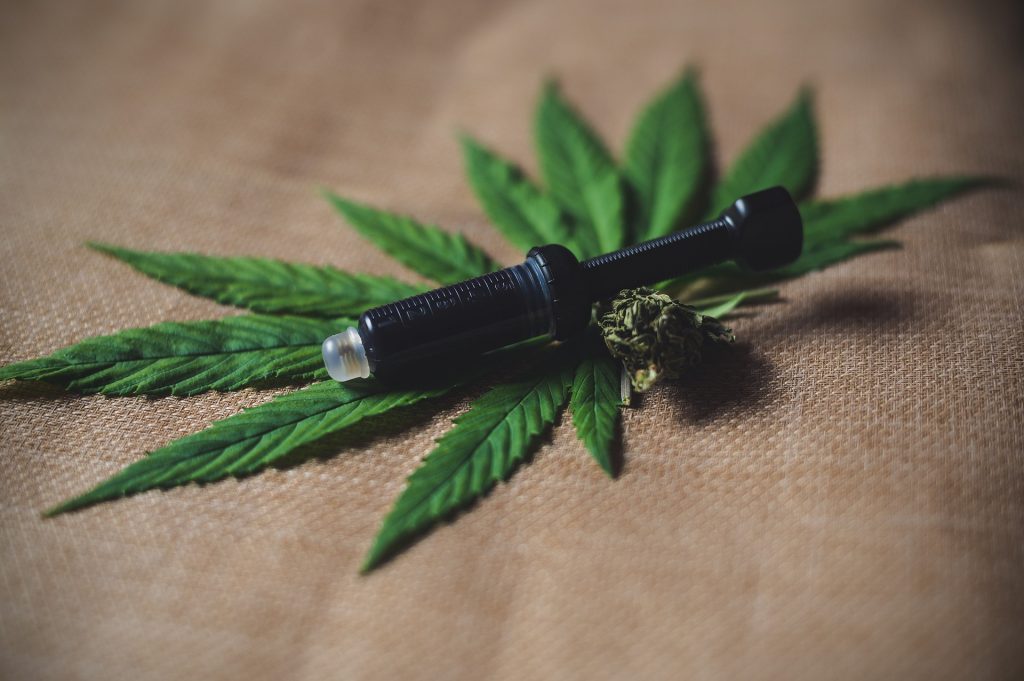
As the lawful use hemp and also various other cannabis items expands, customers are ending up being much more curious concerning their options. This includes cannabidiol (CBD) and also tetrahydrocannabinol (THC), 2 natural compounds discovered in plants of the Cannabis category.
CBD can be removed from hemp or cannabis.
Hemp as well as marijuana originate from the Cannabis sativa plant. Legal hemp must contain 0.3 percent THC or less. CBD is offered in the form of gels, gummies, oils, supplements, extracts, and more.
THC is the main psychoactive compound in cannabis that produces the high experience. It can be consumed by smoking marijuana. It’s likewise readily available in oils, edibles, casts, capsules, and much more.
Both substances communicate with your body’s endocannabinoid system, yet they have extremely various impacts.
Continue reading to find out more regarding these substances. While they may have a lot alike, they have some vital differences that determine just how they’re utilized.
CBD vs. THC: Chemical framework
Both CBD and also THC have the precise very same molecular structure: 21 carbon atoms, 30 hydrogen atoms, and 2 oxygen atoms. A minor difference in exactly how the atoms are prepared accounts for the differing effects on your body.
Both CBD and THC are chemically comparable to your body’s endocannabinoids. This permits them to connect with your cannabinoid receptors.
The interaction influences the release of neurotransmitters in your mind. Natural chemicals are chemicals responsible for relaying messages between cells and have duties suffering, immune function, tension, and rest, to name a few.
CBD vs. THC: Psychoactive components
Despite their comparable chemical structures, CBD as well as THC don’t have the exact same psychoactive effects. CBD is psychoactive, simply not similarly as THC. It doesn’t create the high associated with THC. CBD is shown to help with anxiety, clinical depression, as well as seizures.
THC binds with the cannabinoid 1 (CB1) receptors in the brain. It produces a high or sense of bliss.
CBD binds really weakly, if whatsoever, to CB1 receptors. CBD requires THC to bind to the CB1 receptor and also, in turn, can help reduce several of the undesirable psychedelic impacts of THC, such as bliss or sedation.
CBD vs. THC: Legality
In the United States, cannabis-related laws are evolving routinely. Technically, CBD is still thought about a Schedule I drug under government law.
Hemp has actually been removed from the Controlled Substances Act, however the Medicine Enforcement Administration (DEA) and Fda (FDA) still categorize CBD as a Schedule I medication.
Nonetheless, 33 states plus Washington, D.C., have passed cannabis-related regulations, making medical cannabis with high degrees of THC legal. The marijuana may need to be recommended by a licensed physician.
Furthermore, a number of states have actually made leisure use of cannabis as well as THC legal.
In states where marijuana is legal for leisure or clinical functions, you ought to be able to buy CBD.
Prior to you shop products with CBD or THC, it is very important to research your state’s laws.
If you have cannabis-related items in a state where they’re prohibited or don’t have a clinical prescription in states where the items are lawful for clinical treatment, you might deal with legal charges.
CBD vs. THC: Medical benefits
CBD and THC have much of the very same clinical advantages. They can provide remedy for numerous of the exact same problems. However, CBD doesn’t cause the euphoric effects that occur with THC. Some individuals may prefer to make use of CBD due to the lack of this adverse effects.
In June 2018, the FDA approvedTrusted Source Epidiolex, the initial prescription medicine to have CBD. It’s utilized to treat rare, difficult-to-control types of epilepsy. (Epidiolex is not currently accepted for any one of the other conditions listed below.).
CBD is used to aid with various other numerous conditions, such as:
- seizures.
- swelling.
- pain.
- psychosis or mental disorders.
- inflammatory bowel disease.
- queasiness.
- migraine headache.
- depression.
- anxiousness.
THC is made use of to help with the following:.
- discomfort.
- muscle spasticity.
- glaucoma.
- sleep problems.
- reduced hunger.
- nausea.
- anxiousness.
CBD vs. THC: Side effects.
CBD is well tolerated, even in big doses. ResearchTrusted Source recommends any kind of negative effects that accompany CBD use are likely the outcome of drug-to-drug communications in between CBD and also various other drugs you may be taking.
THC creates short-term negative effects, such as:.
- boosted heart rate.
- coordination problems.
- dry mouth.
- red eyes.
- slower response times.
- amnesia.
- stress and anxiety.
CBD’s side effects might include:.
- appetite adjustments.
- tiredness.
- weight-loss.
- dizziness.
- looseness of the bowels.
These side effects become part of the substance’s psychoactive homes.
Neither compound is deadly.
Nevertheless, high THC use may be connected to lasting negative psychological impacts. This is specifically real for adolescents that consume huge quantities of THC, though there’s no conclusive evidence that making use of marijuana causes psychiatric problems like schizophrenia.
CBD vs. THC: Drug testing.
Cannabinoids like THC as well as CBD are stored in the body’s fat. They can turn up on drug tests for several days or weeks after you utilize them.
Not every medication examination will certainly have the ability to detect CBD, however CBD-sensitive examinations are readily available. The majority of typical medicine examinations will look for chemicals associated with THC, so THC or marijuana use may turn up on a testing.
Furthermore, hemp can create some THC in addition to CBD, so an examination could be positive for THC even if you haven’t utilized it.
It is essential to note that items that assert to be THC-free might not be devoid of THC, so if you’re medication evaluated, you shouldn’t use any kind of CBD or THC products.